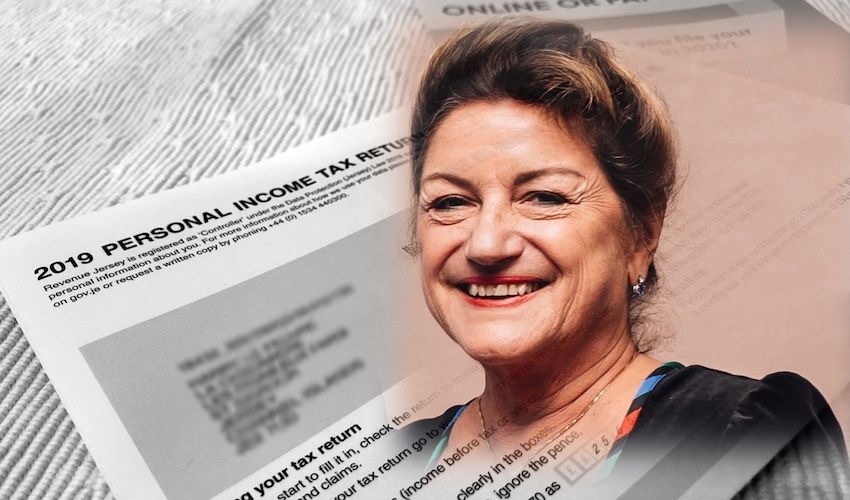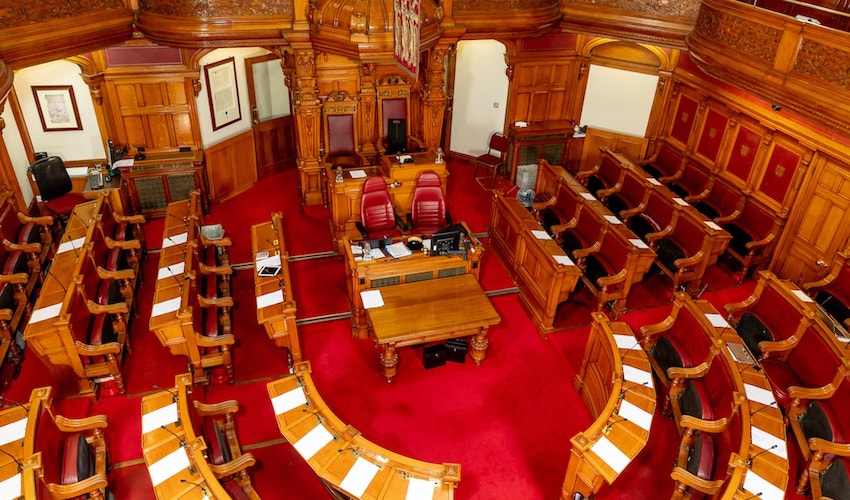


Around two thirds of islanders could have their 2019 tax bill frozen until 2023 under new plans to get more people paying their taxes based on their current earnings, rather than last year's.
Roughly 45,000 islanders are currently paying their tax in arrears - a system known as Prior Year Basis (PYB) - and will be moved to a Current Year Basis (CYB).
Treasury Minister Deputy Susie Pinel is now proposing reforms that she says will simplify the way two-thirds of Jersey’s taxpayers pay their taxes, as part of the government’s £150m stimulus package announced earlier this month.
While the move to Current Year Basis has been in the works for the past decade, the government said the plans have been accelerated due to the pandemic to help islanders whose earnings may have reduced significantly this year.

Pictured: The Prior Year system can make it difficult for people to pay their taxes if their income reduces.
Under the Prior Year Basis system, if a taxpayer’s circumstances change and their income reduces, it can become difficult for them to pay a prior-year’s bill on a current year’s income.
Under the new measures being proposed, these taxpayers would be moved onto the Current Year Basis and pay their tax as they earn.
All tax payments made during 2020 would be moved at the end of the year to pay off the 2020 tax bill.
Those who are self-employed or pay tax on account through two payments in May and November are being given the option to not pay tax in November. The same option will also be offered to pensioners.

Pictured: Richard Summersgill, Jersey's Comptroller for Taxes.
However, Comptroller for Taxes, Richard Summersgill said it would be more prudent to people to still make a payment if they can, as it would "reduce their future tax balances".
Likewise, he recommended that islanders whose earnings have not been affected to continue making their payments as normal.
For all 45,000 taxpayers concerned, the 2019 tax bill would be frozen until January 2023 and a range of repayment options are being developed.
The move has not been set in stone, however, and will be subject to approval by States Members.
The Treasury Minister said she would be writing to all PYB and CYB taxpayers over the next week to provide them with information about the proposed changes.

Pictured: Taxpayers will soon receive a letter from the Treasury Minister.
She said she hoped it would provide an "extra financial relief" to islanders while helping put millions back into the economy.
"This could put £18million to £20million in the hands of taxpayers to help them manage the aftermath of the lockdown," Mr Summersgill said.
Islanders will also have the opportunity to share their views on the tax reform proposal and the payment options in a survey which will launch on 3 August online, with paper copies available Parish Halls, the Library in St. Helier and the Citizens Advice Bureau.
“The problems associated with paying taxes on a Prior Year Basis have long been spoken about and I understand that many households have gone through a worrying time as their incomes have been impacted by the covid-19 pandemic,” Deputy Pinel said.

Pictured: The proposed changes will have to be approved by the Assembly.
“That is why I have asked officials to accelerate the work surrounding abolishing PYB from this year onwards. This measure will bring relief to many islanders who may have had reduced incomes for much of 2020 due to covid-19 and are worried about the tax they owe.
“It will, in most cases, put more money in many islanders’ pockets in the short-term, which will help to stimulate Jersey’s economy as the island recovers from the pandemic. We also want to make sure that the payment options for the 2019 tax liability are affordable for everyone.”
Deputy Pinel explained her department had opted to defer the tax payments rather than simply write off the liability.
"This represents £320million, especially given all the additional costs for the government during the pandemic, payments will have to be made but they will be delayed.
"It would have been unacceptable to write it off not only from a financial and economical point of view but also from a fairness point of view."
The proposed changes are scheduled for debated by politicians in October.
Comments
Comments on this story express the views of the commentator only, not Bailiwick Publishing. We are unable to guarantee the accuracy of any of those comments.